#the deductionist
Explore tagged Tumblr posts
Text
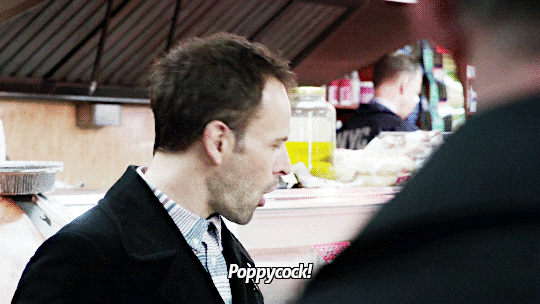




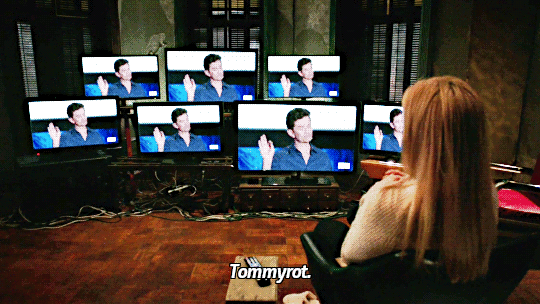
#elementaryedit#elementasquee#*elementary#elementary#the deductionist#possibility two#the man with the twisted lip#art in the blood#bella#into the woods
1K notes
·
View notes
Text
Elementary 114 The Deductionist


She just accepted his choice of clothes for her.
48 notes
·
View notes
Text
Deduction Tips #16
The size of a bag is indicative of how much a person needs to carry, and usually we prefer to carry less things. When you see someone with a bag (be it a backpack, a purse, or anything else) think about why this person needs a bigger one rather than a smaller one, and what that says about the contents of the bag and the situation of the person carrying it
#deduce#learning deduction#deductionist#deductive reasoning#deduction#sherlock#logic reasoning#observant#observation#profiling#psychology#logic#sherlock holmes#bbc sherlock#sherlock bbc#Sherlockian Deduction#How to think like Sherlock Holmes#study#studyblr#learning#tips#memory#mind palace#microexpressions#criminal minds#the mentalist#house md#elementary#body language
63 notes
·
View notes
Text
Stoic Perspective
This post will be some kind of addition to mindset, but also very important part. You might be wondering how it is related to deduction and Sherlock Holmes but even though we don't see Sherlock talking about Stoicism, he follows it in most cases. (Mixed with Cynicism which started around the time Diogenes lived.) So, let's see how Sherlock uses and how we can use it in our daily life.

Remember this episode? Season 1 Episode 3. Sherlock solves 5 cases in a row with some time constraints, stress factors, etc. In one scene, Watson asks, "There are lives at stake Sherlock! Actual human lives. Just so I know, do you care about that all?" and Sherlock answers with a brilliant answer: "Will caring about them help save them?" and Watson says "Nope." and then Sherlock says "Then I will continue not to make that mistake." Obviously, they show it like Sherlock doesn't care about anyone and is an egocentric narcissistic robot but that is certainly not the case. If you watch other adaptations(Granada, Elementary or even the books)Sherlock cares about other people, but not in a way normal people do. I am pointing out this scene because it shows us the attitude and mindset of Sherlock. Let's see how we can apply this in real life:
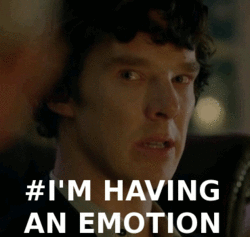
1-Caring without Emotions
"Emotional qualities are antagonistic to clear reasoning." -Sherlock Holmes
After watching Sherlock we shouldn't try to be like Sherlock, especially if we don't understand how he thinks. When he says, caring won't save them it doesn't mean he doesn't care. It just means it is not relevant and emotions won't help them in any way because it will cloud his thinking and deductions. So, what can you do in situations where stress is high and your emotions come to the surface?

1-Recognize them: Don't suppress or act like you don't have them. Just realize they are there and act accordingly. If you say "There is nothing wrong with me. I don't feel any emotions right now..." then you won't be aware of the affect they have on you.
2-Think Clearly: It is easy to say but hard to do. How can we think clearly? What does it mean? It means you have to use the relevant data and eliminate what is not. If you want to think clearly, you have to recognize your feelings, emotions etc. You have to be aware of them at every step so that when they are affecting your reasoning, you can overcome them and keep going.
3-Follow Your Logic
Sherlock doesn't call Moriarty after he solves the case because he wants to use time advantage. He wants to work on other cases and because of that, he doesn't call Moriarty. Watson is reacting with emotions and says this woman was covered with bombs all this time. Although Sherlock cares about the woman, he follows the logic. If he uses the time to his advantage, he can save more than one life but if he reacts with emotions, he will just save one. So, use your logic and act accordingly.
2-Perspective For Problems "External things are not the problem. It's your assessment of them. Which you can erase right now." -Marcus Aurelius
This can change a lot of things about how you see your problems. Let's say you have a lot of work to do and after a long day you are going home. When you arrive there, you realize your house is on fire? How would you react?
I believe, most of us would be full of emotions. Why did this happen to me? Why is life not fair? My life is over. What will I do now?
But if we just can change our perspective and practice it in our daily life we would have a very different and constructive response to the situation. Now, here is the perspective I am talking about:
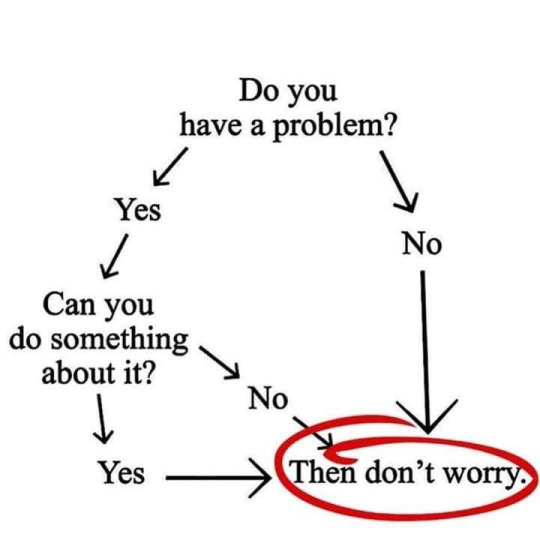
Now think about the same scenario. You see that your house is on fire. You think "Can I do something about it?"->"Yes. I can call the fire department." or "No. It is too late. Everything is turned to ash." In both cases, you don't have to worry because it is already done. You can't travel back in time so you have to create your plans for the future. You can't waste time thinking about the past because it will limit your capacity to act on the future.
If you use this perspective in every situation, eventually it will become automatic and your emotional reactions will not be as strong as it is now. This way, you will be able to use your logic more easily and solve the problem you have.(Or you will stop worrying if you don't have a problem.) This is probably the fundamental perspective of Stoicism.
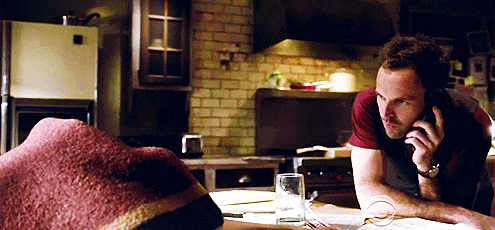
3-Expressing Emotions
I won't go deep into the Jungian Shadow or deep psychology of the emotions and suppressing etc but we have to be aware of this fact: The fact that if you don't express your emotions in some way, it will come out later bigger than it was.(Also, you won't be in control.)
If you watched Elementary, you know that almost in every episode Sherlock express his emotions to Watson.(Or to someone else. Which by the way is a more human adaptation of Sherlock.)He talks with her about what he feels and thinks about the situation because he can't deal with them alone. We can't deal with them alone too so we have to find some ways to express them. Here are some basic ones: 1-Talking to your Watson
If you have someone you are close to, then talk to them. Explain your feelings and emotions as clear as you can be.
2-Keeping a Journal
You won't always have an opportunity to talk with somebody so you need to talk with yourself clearly, which is what journaling does. You use words and getting things out of your head so you can analyze them more clearly. Just write and then read them aloud.
3-Physicality
If you like to work out, run, go to the gym or do any physical activity, do it. It is especially useful for anger and sadness. Try and find whatever works for you.

So, that is a general look at emotions and how to live with them. After you read this, you won't immediately detach from your emotions and act with your logic. This post is not enough, so you have to do your own reading. Some suggestions for reading: Meditations-Marcus Aurelius (Excellent example of journaling in a stoic way.) The Handbook-Epictetus Ryan Holiday's books(All relates to Stoicism)
And one last thing. Always remember these wise words:
"You have power over your mind, not outside events. Realize this and you will find strength." -Marcus Aurelius
#deduction#sherlock holmes#bbc sherlock#deductive reasoning#sherlockbbc#sherlock#deductionist#observer#awareness#emotions#perspective#emotional#reflection#stoicism#seneca#philosophy#marcus aurelius#epictetus
25 notes
·
View notes
Text
Visualizing the Building Theory using BBC Sherlock
@amateur-deductions recently did a post on the Building Theory. In his words:
[The Building Theory] serves as a wonderful way to illustrate how much a deduction is a progressive process, with multiple little steps between observations and conclusions. It's also an amazing tool to analyze other people's deductions and break them down in a way that allows you to map out their trains of thought and learn from them
He provides an excellent explanation of how the theory works: basically, you think of the process of deducing as constructing a building, with observations and subsequent deductions representing bricks that are stacked on top of one another, building up to more complex deductions based on those original observations & deductions.
I’ve always liked this theory because it makes the process of deduction more tangible and visual, which helps me learn, and I know others like to use visuals to learn too.
I’ve mapped out deductions from BBC Sherlock before, so I thought sharing that here would help provide a visual supplement to @amateur-deductions‘ work.
When Sherlock and John first meet, Sherlock asks: “Afghanistan or Iraq?”
You can watch the scene where he asks that here. And the scene where he explains how he got to that here.
While the show provides a decent verbal breakdown of how Sherlock got to that question, we can also visualize his process like this:
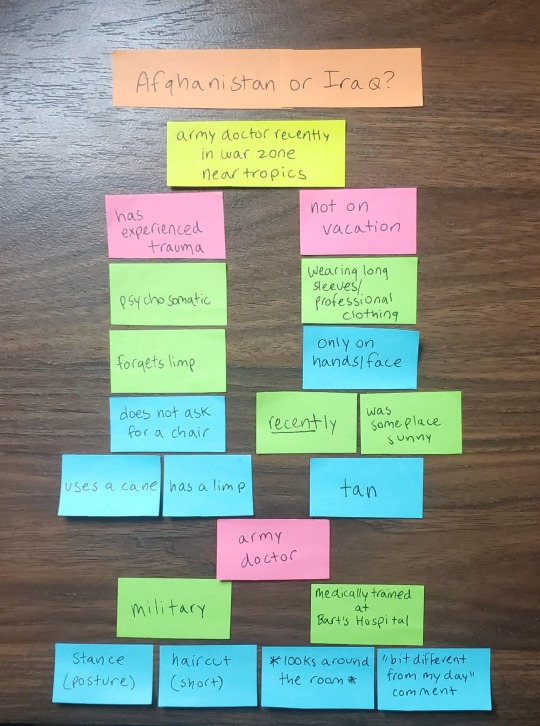
blue: observations // green: deductions made from observations // pink: deductions made from prior deductions & observations (level 1) // yellow: deductions made from prior deductions (level 2)
As you can see, Sherlock uses his initial observations about John to make deductions, and then uses those deductions to make additional deductions. All of this culminates in him asking John “Afghanistan or Iraq?”
Let’s break down this process a bit. We can think of this building as being made up of a bottom floor, and then two supporting sides that work together to build onto that bottom floor and also support the roof placed on top.
First, the bottom floor:
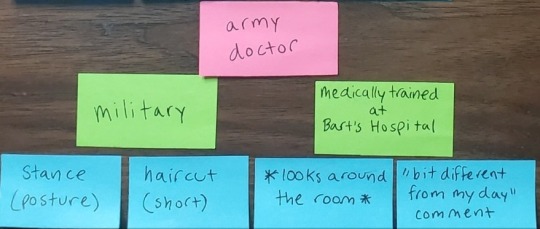
When John enters the room, Sherlock looks up at him and makes four observations about him, which he uses to make two deductions.
1. stance + haircut = military
** Sherlock knows that these observations = military from knowledge he has about the appearance/behavior of people in the military.
2. looks around the room + says “bit different from my day” = medically trained at Bart’s Hospital
** Here Sherlock uses a combination of knowledge and logic. He knows that Bart’s Hospital is a well-known training hospital and if John is familiar with the lab that the pair are standing in (as opposed to a patient room), he must have been a student there.
Sherlock then takes those two deductions and combines them to create another: military + medically trained = army doctor. That deduction forms the base of the rest of the building.
Next, there are two supporting sides. Let’s call them the “limp” side and “tan” side, as those are the two observations that form the base of each.
First, the limp:
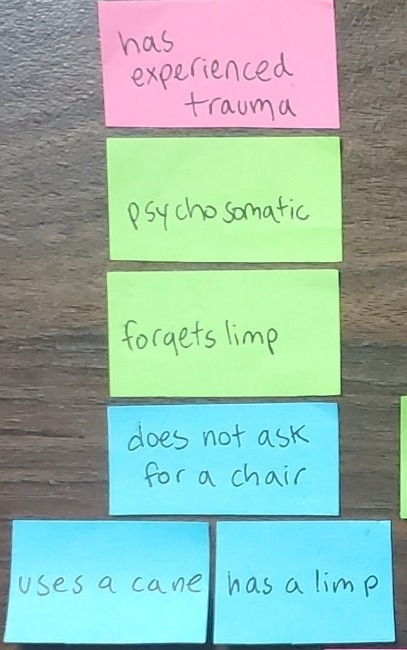
Sherlock begins with several observations:
1. has a limp and uses a cane.
2. does not ask for a chair to sit in.
** Knowledge: Sherlock knows that people with limps may look for or ask for somewhere to sit.
From this, Sherlock deduces that John:
1. forgets he has the limp.
2. Why? Because the limp is psychosomatic.
** Knowledge: Sherlock knows about psychosomatic injuries.
3. Which means that trauma caused the limp.
Second, the tan:

Again, Sherlock begins with two observations, and each have their own subsequent deduction.
1. has a tan. = was recently in a sunny place.
** Knowledge: Sherlock knows that people get a tan from being in the sun, and that tans fade over time.
2. only has a tan on his hands and face. = was in a sunny place while wearing long sleeves, so he was not on vacation or sunbathing, but was on business.
** Knowledge: Sherlock knows that when people go on vacation to a sunny location, it is not typical to wear long sleeves or professional clothing but rather dress casual (shorts and a t-shirt, swimsuits, etc.).
Here is where Sherlock’s process culminates into the question. Relying on the deduction that John is an army doctor, and combining that deduction with these two new deductions (1) has a limp from trauma, and (2) was recently in a sunny place for business/work, Sherlock makes this final deduction: John is an army doctor who was recently in a war zone near the tropics.
He cannot go further than this though, as there are a few locations that fit that description. So, Sherlock engages in order to get the information he needs: “Afghanistan or Iraq?”
~
I hope this provided a helpful visual example of the Building Theory - if anybody has any questions or wants me to go into more detail on any aspect of this example, please ask!
71 notes
·
View notes
Note
When it comes to the observation weeks in the training program. Could you elaborate on why we shouldn’t deduce then? Is it only about the time when we are doing the exercises?
Hello! great question, i gotta say i didn't write that program, but i did follow it, so i can only give you an answer based on my experience with it and with deduction as a whole. Unfortunately L isn't available to give you the original reason, but if i get in contact with them i'll make a post with their answer.
So, there's this quote from Sherlock which sums up the reasoning behind this very clearly:
"It is a capital mistake to theorize before one has data. Insensibly one begins to twist facts to suit theories, instead of theories to suit facts."
During this stage of the program it is assumed you're coming into deduction as a complete beginner, and therefore that you haven't honed your observation skills yet. This means you'll inevitably be at a point where if you try to deduce you'll be doing so while missing a large amount of information, and fall into the trap of not knowing you're missing information and trying to work with what you have, which leads to often taking big leaps in reasoning to reach conclusions, because you don't have enough data to work with.
This is also why when i teach people i make sure they're at an acceptable level in their observation skills before i move onto other stuff. Later on in the process you learn how to make the most out of a situation where you have little to no information to deduce from. But that's a bit too complicated for a beginner, so it's important that they don't try to deduce until they have a solid grasp on what information they can gather
Aditionally, the training program, as incomplete as it may be, attempts to separate the process of learning deduction into manageable chunks. That program was written during a time where the community was much bigger and everyone attempting to find some way of learning this skill. Everyone was coming up with solutions to their problems and sharing them in the community, and that program is an attempt to solve the overwhelming feeling that comes with trying to learn a massive skill with multiple possible points of entry. It segments it into manageable, organized chunks for people to have a neat way of getting started with deduction, and one of those chunks is just observation, since it's complex enough of a base skill to have its own section
#deduce#learning deduction#deductionist#deductive reasoning#deduction#sherlock#logic reasoning#observant#observation#profiling#psychology#logic#sherlock holmes#bbc sherlock#sherlock bbc#Sherlockian Deduction#How to think like Sherlock Holmes#study#studyblr#learning#tips#memory#mind palace#microexpressions#criminal minds#the mentalist#house md#elementary#body language#answers
17 notes
·
View notes
Note
you haven't posted anything in a while, you ok?
I'm alright, just quite busy.
#busy#deductionist#deduction#tumblr#deducter#deduce#deductive reasoning#science of deduction#tumblrpost#q&a#bored#observant
11 notes
·
View notes
Text
The presence of mind
In the span of 4, almost 5 months since I started deduction, I haven't seen anyone talk about the presence of mind (PoM).
PoM is important for a good detective in my opinion,
It separates you from all the NPC that do what they are programmed to do, a straight line.
A detective sees nuances in life, something out of place, something missing out.
And these are not something you look for, can't spend all day watching people, watching for clues.
Physically impossible,
Arguably a waste of time.
Presence of mind means you know what's normal, and your "spider sense" tingles when something is wrong.
That's when you start looking for clues.
Seemingly an effortless and effective.
The question now is how.
2 notes
·
View notes
Text
I seem to have a bunch of followers who keep interacting with my posts with a blog that looks like this. Yes you do look like bots, yes i do cleanups of my followers list sometimes, to avoid being blocked follow this advice.
Also the reblogs thing is 100% accurate, please, if given the chance to reblog or like, do reblog it the algorithm is built around it, my post with the most reblogs is the one with most notes in general, so please reblogs on tumblr are the equivalent of likes on instagram or retweets on twitter
new to tumblr?
found yourself getting blocked for seemingly no reason?
does your profile look like this:

you're getting blocked because people think you're a bot
do yourself a favour and change your profile images to literally anything except the defaults. give your blog a name, give yourself a bio even if it simply says "new, figuring this out" or something. please, just do ANYTHING that shows everyone you're a human. then you wont get blocked anymore and you'll have a lot more fun here!
oh and while we're here, another hot tip: reblog things. likes do nothing here, there's no algorithm
okay happy tumblring tumblrinos, tumblrinas and tumblrinehs!
#tumblr#how to think like sherlock holmes#sherlockian deduction#deduction#sherlock#bbc sherlock#deductionist#observation#deductive reasoning#deduce#spam bots#fucking bots#memory#mind palace#micro expressions#psychology#psych
29K notes
·
View notes
Text
me when something puzzles me about a sequence of events in a media so i think so hard about it that not only it makes sense but also i have 3 hours worth of bonus footage that only exists in my brain. thats usually when i write fanfiction
#happened with c3 and fcg mentioning something orym said while he shouldve been in stasis#happened with marcus and sherlock and the finale scheme paired with the deductionist paired with the s2 addict revelation
1 note
·
View note
Text

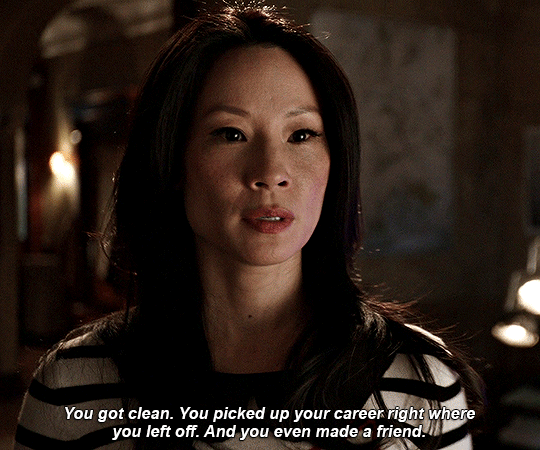


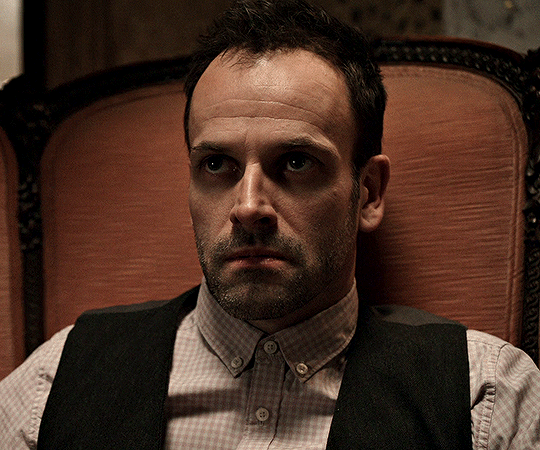
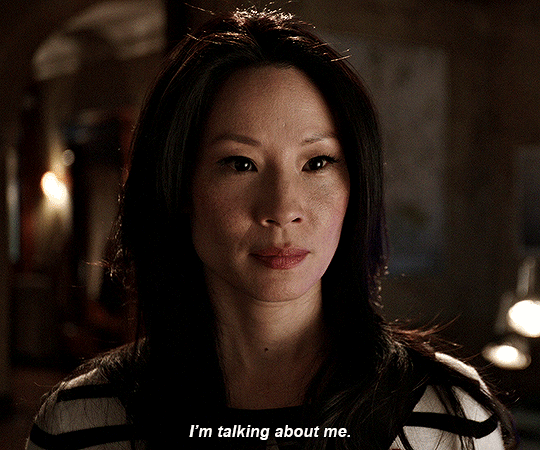

Elementary | 1x14 The Deductionist
1K notes
·
View notes
Note
Hi!!! How can deductions be used in day to day life, or like, usefully? And how have you made useful deductions? Sorry if that made little sense
Hi! I see you sent this question in the past two days, i'll gladly answer it, but in case you send any other questions in the future and i don't answer them as quickly i'll inform you that usually all the questions of the week are collected in my inbox and you'd get your answer on a Monday (this week i had some scheduling problems so i pushed it to Wednesday), so if you don't get as quick an answer next time just wait for Monday!
Now, regarding your question! There's many ways deduction can be used in daily life, sometimes it even depends on what you do for a living. For example i know psychologists and other healthcare profesionals have to rely on non verbal communication and information they gather from observation, along with what they're told, since patients can't be relied upon to be transparent and honest all the time, or even know what information is releant to share. In this case deduction can be massively useful.
On a more general note, it depends a lot on the type of relationships you have, i know people who use deduction to interact with their friends, it allows them to know when they're feeling upset or worried, and about what, and act accordingly, all without needing to do more than just glance at them. I know people who use deduction to navigate social situations because they're not good at interacting with people and having the extra information deduction provides helps. Personally i'm someone that introduces deduction into everything i do, from acquiring helpful knowledge when talking to superiors, to knowing what waiter is best to call over at my table cause they've gotten more hours of sleep.
I recommend you watch Sherlock, House M.D., The Mentalist, and all of these deduction heavy shows that sometimes showcase how these characters use their skills casually, it's really not much different than what you see there. If you want a blog that really goes into casual uses of dedduction i'd check out @froogboi 's blog, it's full of everyday life uses of deduction
#deduce#learning deduction#deductionist#deductive reasoning#deduction#sherlock#logic reasoning#observant#observation#profiling#psychology#logic#sherlock holmes#bbc sherlock#sherlock bbc#Sherlockian Deduction#How to think like Sherlock Holmes#study#studyblr#learning#tips#memory#mind palace#microexpressions#criminal minds#the mentalist#house md#elementary#body language#answers
24 notes
·
View notes
Text
Very exciting topics. Good one.
Present Deductions 2023
I was very excited to see this guide from @studies-in-the-art-of-deduction come across my dashboard! The following contains a relatively casual series of observations and deductions pertaining to the Christmas gifts from my immediate family.
Present #1
The size, box structure (lid over base), weight, and movement suggest shoes.
Relatively heavy which suggests boots, possibly intended for our upcoming family trip. There is free movement within the box and I can hear the tissue paper.
The box lid extends over the primary container on 3 out of 4 sides.
My mother knows I like Doc Martens, a quick google shows the doc martens box has two holes on either side, which are present on this gift. Many shoe boxes have holes, but Doc Marten holes specifically extend over the edge onto the top of the box. Given the fact that I own multiple pairs of Doc Martens and have not outright asked for them this Christmas, my earlier theory of boots specifically for the upcoming trip (Christmas in New York) is looking more likely. I have no idea which direction my mother may have gone in terms of style, but I know she has an affinity for soft unstructured leather.
This being said, I have a few notes. Yesterday, my mother and I went out shopping, during this outing she purchased me a pair of loafers. It is possible that she reconciled the fact that loafers and boots are dissimilar, which both supports my boot theory and discredits the possibility of other styles, but this does make me slightly wary, especially because I pitched the loafers with the intention of using them on our trip.
The second issue is that there is the possibility of a box inside of the Doc Martens box. I am not overly concerned with this, as the presence of the Doc Martens box would suggest that she bought Doc Marten shoes recently, and I know that she did not buy them for herself.
Third, it is possible that this box design is common for other shoe brands, possibly one which she purchased recently for herself, which led her to repurposing the box. I searched a few major brands, and none of them had the unique extending holes. The only shoes my mother bought recently belong to a brand that does not sport any box holes. It is possible that this box inside a box phenomenon is due to the heavy soles of the boots hitting the sides of the box. Beyond this, my efforts would be distilled into aimless googling. Aimless googling is an option, but at this time my confidence in the answer is not outweighed by the suspicion that I’m wrong.
Present #2
The lack of movement in the box suggests something relatively fragile. The metallic cling is familiar to that of glass blown ornaments (confirmed by comparing the sound to other ornaments on our tree). My mother has a habit of buying both myself and my brother an ornament each year, it is highly likely that this box contains mine. Due to my interest in Sherlock Holmes and my recent excursions to various historical conventions, I believe this ornament is related to the canon Sherlock Holmes (combines Sherlock with my historical interest), or perhaps Victorian London.
Present #3
This particular present is rather tricky. The top of the box has been cut open and wrapping paper has been placed around it. The squishy feeling of the box is reminiscent of a crude cardboard, which suggests that this present was shipped. The packaging would not be opened if this were the box for the actual product. Given these facts, it can be inferred that my mother opened the box to check the contents when it arrived and wrapped it up. The box is light, and has very little movement within. The sound is very faint. My mother mentioned buying me a hat for our upcoming trip. I am guessing this present contains that hat, as there is no other box that suggests it, and the hat is unlikely to be a stocking stuffer.
Present #4
This present is from “my brother” - ie. a present from my mom that she put my brother's name on. Clearly a paperback book, given the size, lack of box, and bendability. 4 words show through the wrapping paper “serial killers” and “great cons”. The google search “serial killers + great cons + book” leads me to this amazon listing https://www.amazon.com/True-Crime-File-Kidnappings-Survivors-ebook/dp/B09F5JHK16
Cross-referenced with the font and we have a match.
Present #5
By far the trickiest present, this package once again falls into the shipping box category. The box is not light, but it’s also not overly heavy. It’s lighter than the shoe box (Present #1).
I believe there’s internal packaging, perhaps a bubble wrap of some kind. There’s almost definitely another box/container inside, but it’s either a flimsy package or is padded with packaging materials. I am rather excited to say that I have no idea what this present contains. I’m going to take an educated guess and say it might be a Victorian reenactment dress, given my recent increase in that specific interest and the general box size/weight, but I don’t declare that with any level of certainty.
I encourage you all to post your own present deductions, and to check out @studies-in-the-art-of-deduction's guide to inform your endeavors. I look forward to posting the answers to this particular set of gifts after Christmas.
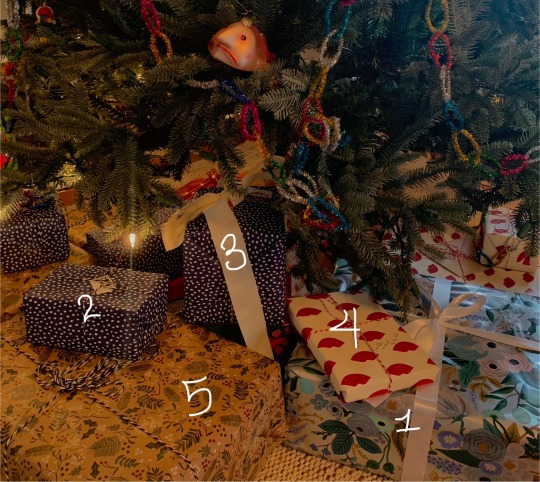
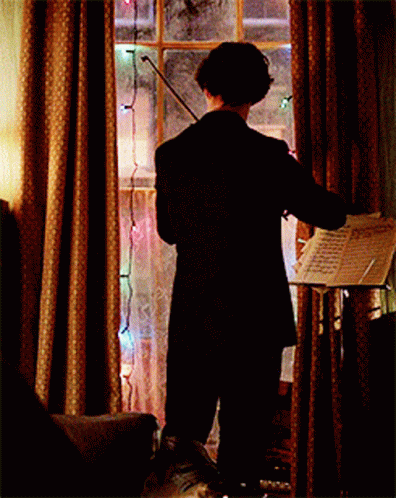
My best wishes to you this Holiday Season!
#deduce#learning deduction#deductionist#deductive reasoning#deduction#sherlock#logic reasoning#observant#observation#profiling#psychology#sherlock holmes#bbc sherlock#sherlock bbc#Sherlockian Deduction#How to think like Sherlock Holmes#memory
17 notes
·
View notes
Text
Observation 101
So, here we are. If you practiced your Mindset and Intuition, observation will be more useful for you. Obviously, in 1 post we can only discuss what is observation and how to observe better. In the future, we will go deeper and analyze scenes. For now, let's get started.

Some people think that observation is just looking around. But here is the difference: Looking around is passive, observation is active. There is something called "Passive Observation" but it is not the same as looking around.
Passive Observation: It is an automatic habit you develop. You don't actively look for details but you observe. For example, you shake someone's hand and later you can say it was a firm grip and he wore a watch even though you weren't paying attention. Obviously, details come with attention so you won't observe a lot passively.
Active Observation: You have a purpose and you channel your observation with this purpose. You want to observe as much as possible in the shortest amount of time. So, when you shake hands you don't just shake, you are trying to get a feel of his skin, you are looking for the brand of the watch etc. When you become active, more details are available to you.
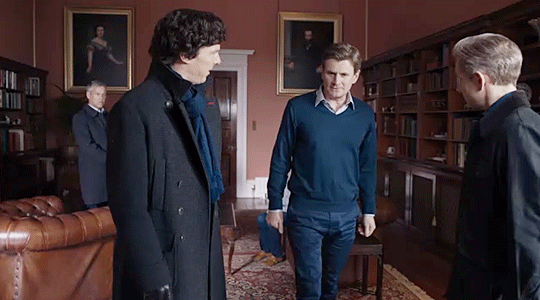
Let's analyze this scene in a very superficial way. Sherlock listens to the victim's parents and while he turns his head, he notices something. He realizes that an object is not where it is supposed to be. It is just an instant intuition and passive observation. It appears he wasn't actively looking but still noticed it because he practiced observation for a long time and he can observe even when he doesn't give attention.
Obviously, we have a lot of examples of active observation so I won't go deep on that.(Basically, every scene where Sherlock makes a deduction is almost an active observation. Though, we will go deeper in the next posts.)We can't do anything about passive observation because it will come with practice. For now, let's focus on active observation.
How to Observe?
Even if you know what to look for, if you don't know how to look, it won't matter. (You will look for a watch on a man's wrist but miss the detail that it is a woman's watch. )
So, for the last 3 years, I did research about how to observe and still @amateur-deductions program is one of the best programs. 2 basic questions will increase your observation skills immensely. Those are: 1-What is missing? This question is important because like the example above(Sherlock notices what is missing, which is bust)you need to see what is not there but should be. Almost everyone buys dumbells as a pair. So, if you see a 5 kg dumbell on the ground, you should question where is the other one.(If there is another one.) If you ask yourself "What is missing?" you will see it easier.
2-What seems out of place?
You see a soldier but he is not shaved. Why? Maybe he left the military or he is lying. Whatever the case, there is something out of place and by asking "What seems out of place?" you will look for odd details. These 2 questions are not enough but very important for the foundation. In addition, never forget: “There is nothing more deceptive than an obvious fact.” Never take anything for granted.
Your brain will trick you when there is an obvious fact like that:
Wrong: This person wears a watch. A lot of people wear a watch so it is not important. I don't have to observe it.
True: I wonder what can I observe about this watch? What time does it show?
What to look for?
The answer to that question is simple: Everything. You can't take the risk of missing any details so you have to observe everything. After you observe everything, your observations will draw you a path and you will go deeper into some of them. So, observe everything.
This is a long introduction but a necessary one. In the future, we will go deeper. So, if you have any questions about observation, send them. For now, that's all. See you later.
#deduction#sherlock holmes#bbc sherlock#deductive reasoning#sherlockbbc#sherlock#art#deductionist#awareness#observer#just an observation#elementary sherlock#cbs elementary#joan watson
33 notes
·
View notes
Text
using all 5 senses in observing and deducing is a pretty well known tip I think
for one, sometimes there are sounds with a source we can't see, so we only know about them through sound
we also can't *see* how things taste or feel (though we can get a vague idea through sight)
a less obvious part of this is that multiple senses can be used at the same time - deducing is sometimes visualized as a step-by-step process where each step happens in succession, and that's mainly to help beginners learn - eventually, the thought process goes faster and can overlap *because* we overlap our senses in everyday life
for example, the other day i was walking through my neighborhood
i was focused on the sky, and to the right, not to the left - i was watching the sky for a few things, and then dragging my hand across the stone wall to the right, so that's already using multiple senses at once
im walking and i realize i smell honeysuckle, so i look around and realize to my left is a line of honeysuckle bushes
had I been looking All Around, I'd have seen the honeysuckle and not even needed to smell it (since I know what honeysuckle looks like), but my eyes were preoccupied elsewhere, and I'd have missed the bushes if I hadn't been able to smell them in place of seeing them
so, point here is yes sight is probably what you're focused on when deducing, but while you're looking around using your eyes, stay aware of any noises or tastes or textures that pop up in your periphery
#deduction#deductionist#learning deduction#sherlock holmes#deduce#deductive reasoning#observation#sherlock#logic reasoning#sleuth2k7
10 notes
·
View notes
Note
Greetings @amateur-deductions
What are your Go-to advice for for those who start becoming a deductionist and just finished learning body language?
Appreciate Your reply
Bless you all and have a good day.
Hello! Sorry for the delay, i've been on a hiatus since Christmas.
So if you're coming from having learned body language already you have a bit of a head start compared to people that are starting fresh, since you probably have already learned to be more observant, to be constantly aware of things like body movements and facial expressions, and to intepret these things and process them as you take them in. I would say this means you can put a bit less time into the observation practices beginners usually have to go through, and you can dedicate more time to practicing reasoning and logical thinking
I would also say you have the option to approach deduction using your body language background. Something you start to realize as you get better at deduction is that everyone has cultivated different skills they use to extract information, some people use raw logic reasoning, some use extensive psychology knowledge, and some use extensive knowledge in body language and facial expressions, and there's nothing wrong with any of these methods, they're simply what you could understand as different "specialties".
So i would advice that you don't try to learn deduction as a separate discipline than body language, but rather use your body language knowledge, coupled with anything you learn in the field of deduction, to enhance your conclusions
This does come with a disclaimer though. Make sure that you're not leaning into your body language knowledge so much that you're avoiding doing the exercises and learning the methods that are core to deduction simply because body language provides an easier path, since you're well versed in that already
#deduce#learning deduction#deductionist#deductive reasoning#deduction#sherlock#logic reasoning#observant#observation#profiling#psychology#logic#sherlock holmes#bbc sherlock#sherlock bbc#Sherlockian Deduction#How to think like Sherlock Holmes#study#studyblr#learning#tips#memory#mind palace#microexpressions#criminal minds#the mentalist#house md#elementary#body language#answers
12 notes
·
View notes